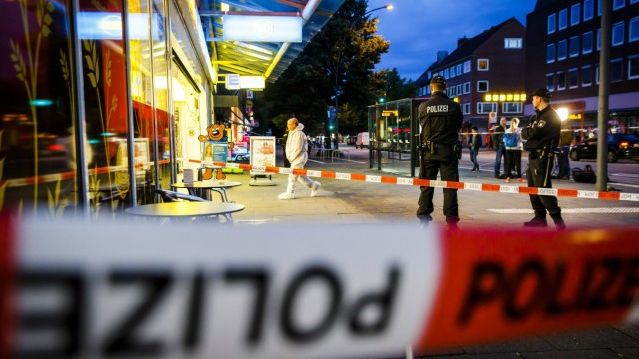Terrorist Attacks

In 2014 and 2015, no terrorist acts were committed in Germany, but this was due to the clear and successful preventative work by the police. On June 27, 2014, police found a bomb in the house of neo-Nazis in Munich. Fortunately, it was found before it could be used.
In 2017, on the territory of Germany, one terrorist act was committed by an Islamist. In July, Akhmat Alkhav, a native of Palestine, asylum seeker who was to leave Germany, attacked a supermarket in Hamburg with a knife. A 50-year-old man died, five people were injured. During the interrogation Alkhav confessed that he committed a crime for religious reasons and set as his goal "to kill as many Christians as possible." [1] According to German Interior Minister Thomas de Mezieru, in 2017, the security services prevented three terrorist attacks in Germany. At least 720 people were found to be potentially dangerous.
The largest terrorist attacks in the later period occurred in October 2019 in Halle/Saale (attack on a synagogue and a Turkish café, two dead and three wounded) and in February 2020 in Hanau (attack on two bong houses, 11 dead and five wounded). In addition, on October 4, 2020, an Islamist of Syrian origin attacked passersby in Dresden. One person was killed and another was seriously wounded. The attacker was known to the security services and had previously been deemed "dangerous. He became sympathetic to the Islamic State in 2017, was arrested, sentenced to imprisonment for illegal activities, served his sentence, and was released in late September 2020.
After the terrorist attacks in France and Austria in the fall of 2020, German political parties proposed new concepts for combating Islamism and showed increased attention to the issue, revealing much of its rethinking. In particular, the Greens, not previously noted for their special interest in this topic, presented a new plan in November 2020. It calls for constant surveillance of potentially dangerous Islamists, increasing the number of intelligence personnel, banning Salafist associations, swift and rigorous enforcement of decisions to arrest suspects and stopping financial flows to finance terrorism. The proposals have been criticized by conservative circles, who argue that the Greens have ignored the threat of Islamism for too long, have shown no interest in measures to suppress Islamist propaganda, or even blocked some initiatives, considering them "excessive.


